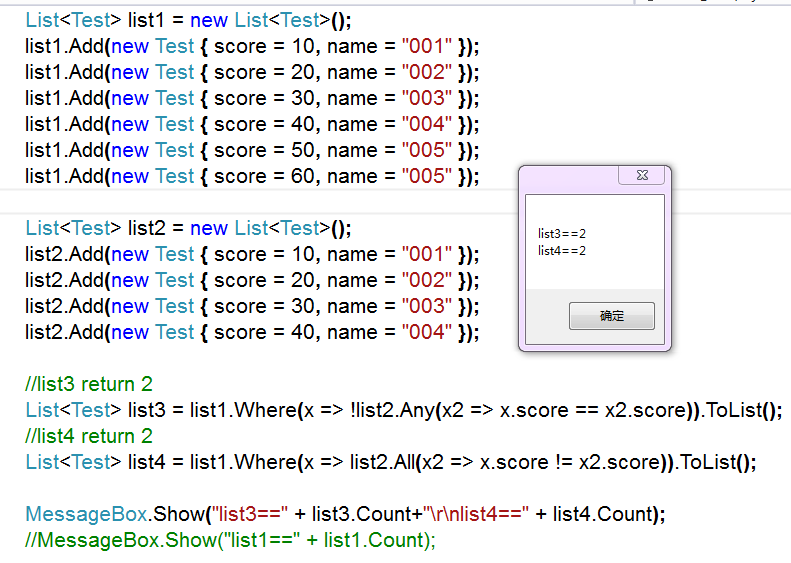Two C # List <TModel> acquired in different objects according to the specified conditions
public class Test
{
public int age { get; set; }
public string name { get; set; }
public int score { get; set; }
}
List<Test> list1 = new List<Test>();
list1.Add(new Test { score = 10, name = "001" });
list1.Add(new Test { score = 20, name = "002" });
list1.Add(new Test { score = 30, name = "003" });
list1.Add(new Test { score = 40, name = "004" });
list1.Add(new Test { score = 50, name = "005" });
list1.Add(new Test { score = 60, name = "005" });
List<Test> list2 = new List<Test>();
list2.Add(new Test { score = 10, name = "001" });
list2.Add(new Test { score = 20, name = "002" });
list2.Add(new Test { score = 30, name = "003" });
list2.Add(new Test { score = 40, name = "004" });
//list3 return 2
List<Test> list3 = list1.Where(x => !list2.Any(x2 => x.score == x2.score)).ToList();
//list4 return 2
List<Test> list4 = list1.Where(x => list2.All(x2 => x.score != x2.score)).ToList();
MessageBox.Show("list3==" + list3.Count+"\r\nlist4==" + list4.Count);
